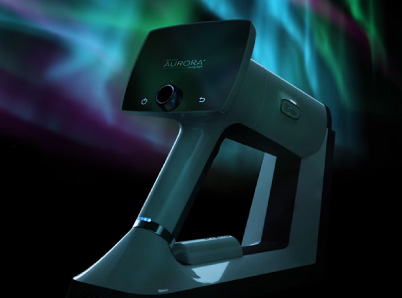How a Fundus Camera Can Improve Your Practice
Diabetic retinopathy is a complication of diabetes that can cause severe vision problems, including blindness. As a primary care physician (PCP), you can help detect diabetic retinopathy in your patients and prevent complications. A fundus camera is a great addition to your practice that can improve health outcomes for your patients while growing your revenue.
You Can Incorporate Fundoscopy in Your Practice
Diabetic retinopathy is typically diagnosed during an annual eye exam administered by an ophthalmologist. During the exam, they will check the patient’s retina for any issues, including signs of diabetic retinopathy.
Although fundoscopy is traditionally performed by ophthalmologists, PCPs can take on this role using a handheld fundus camera. Optomed’s fundus camera can be used by a trained physician with the same accuracy as during a traditional eye exam. This is especially useful in contexts where patients might not go in for their annual eye screening.
If you notice any evidence of diabetic retinopathy, you can refer your patients to a specialist. You can also take steps to help them maintain control of their blood sugar, blood pressure, and cholesterol, which is effective at treating diabetic retinopathy.
Benefits of Optomed’s Fundus Camera
Optomed’s handheld fundus camera is easy to use, and any trained PCP can include this in their practice. This handheld camera is versatile and does not require a specialist. It can be used in the office, in a home healthcare setting, or at a remote screening site. For example, a drive-thru clinic can be set up just for fundoscopy screenings for diabetic patients.
Optomed’s fundus camera is affordable and easy to integrate into an existing practice. It’s also fully compatible with most existing electronic medical records, making it easy to add the results to patients’ charts.
Patients also benefit from a fundus camera being added to the office, as it saves them a visit to a specialist. It is also helpful for any patients who don’t receive regular eye exams. You can help provide an early diagnosis for your patients, which can help prevent vision problems and even blindness. Including a fundus camera in your practice will help patients live better and save money.
Finally, using a fundus camera as part of your patients’ regular check-ups can help you grow your practice. You’ll have an additional source of income because retinal exams are covered by most insurance providers, so you will be reimbursed for providing this service.
How Optomed’s Fundus Camera Can Improve Your Practice
Using a handheld fundus camera is a great way to improve the care that you provide to your diabetic patients. This can help them receive an earlier diagnosis and proactively manage the condition before they have serious vision problems.
Years ago, PCPs had trouble diagnosing diabetic retinopathy using traditional ophthalmoscopes. Thus, ophthalmologists were the only provider to diagnose diabetic retinopathy.
However, more recent studies have shown that Optomed’s fundus cameras are just as accurate as traditional ophthalmoscopes used by a specialist. Moreover, Optomed’s cameras are more affordable and convenient than an ophthalmoscope, making them the better option.
We are the first company to manufacture a handheld fundus camera, and we have the most experience refining our cameras for accuracy. This should give you the confidence to perform fundoscopy in your office. If your patients require additional treatment, you can easily transfer the diagnostic images to a specialist.
Here at Optomed, our mission is to help save the vision of millions of people. By integrating our software and artificial intelligence solutions with our camera, we enable eye screening for everyone, wherever they are. To see how we can equip you to save the sight of more patients, schedule a free consultation today!



